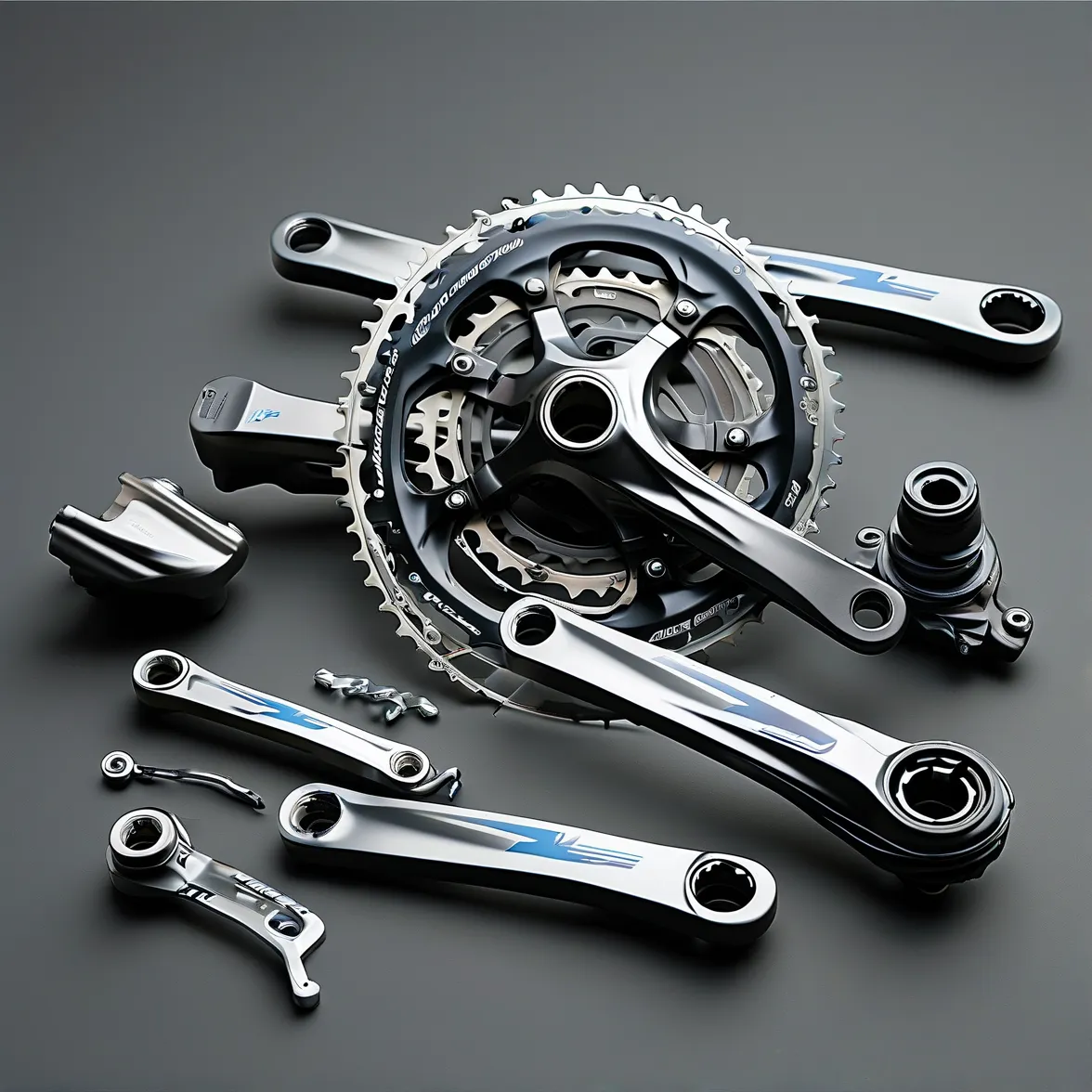Cyclists know the heart of a great bike lies in its groupset—the interconnected system of components that transforms pedal power into motion. Whether you’re upgrading your current ride or building a dream machine, understanding groupset mechanics and performance characteristics is crucial for optimizing speed, efficiency, and riding enjoyment.
What Defines a Modern Bicycle Groupset?
A contemporary groupset comprises:
– Shifters: Electronic (e.g., Shimano Di2) or mechanical control units
– Derailleurs: Precision front/rear gear-changing mechanisms
– Cassette: Cogset determining gear range (e.g., 11-34T)
– Chain: Engineered for specific speed systems (11/12-speed)
– Crankset: Chainring configuration affecting pedaling dynamics
– Brakes: Disc brake calipers/rotors or rim brake systems
Industry leaders Shimano, SRAM, and Campagnolo continuously push boundaries. Shimano’s 2023 Dura-Ace R9200 series introduced hyper-responsive wireless shifting, while SRAM’s Red AXS boasts a groundbreaking 10% wider gear range than previous models (SRAM Engineering Report, 2023).
Performance Hierarchy: Entry-Level to Pro-Grade Systems
1. Recreational Tier (Shimano Claris/Sora, SRAM Apex)
- Ideal for: Commuters/casual riders
- Key specs: 8-9 speeds | Steel components | <$300 complete groupsets
- Durability focus: Withstands weather exposure with minimal maintenance
2. Enthusiast Level (Shimano 105, SRAM Rival)
- Sweet spot: 85% of road cyclists (Global Cycling Network Survey 2024)
- Tech highlights:
- Semi-hydro disc brakes
- 12-speed electronic options
- 400-600g weight savings vs. entry-level
3. Professional Grade (Shimano Dura-Ace, SRAM Red)
- Weight benchmarks:
- Shimano Dura-Ace R9200: 2,304g
- SRAM Red AXS: 2,198g
- Innovations:
- Predictive shift logic (Campagnolo Super Record Wireless EPS)
- Aerodynamic brake/shifter integration
- Titanium/carbon hybrid materials
Critical Selection Factors Beyond Brand Loyalty
Gear Ratio Mathematics
Calculate optimal range using:
Gear Inches = (Chainring Teeth / Cog Teeth) × Wheel Diameter
Example: A 50T chainring paired with an 11T cog on 700c wheels = ~122 gear inches
Compatibility Matrix
| Component | Critical Match Points |
|---|---|
| Cassette | Freehub body type (HG/XDR) |
| Derailleurs | Cog capacity & chainstay length |
| Shifters | Cable pull ratio (mechanical) |
Pro Tip: SRAM’s Flattop chains require exact derailleur pairing—mismatches cause ~23% faster wear (Friction Facts Lab Tests).
Maintenance Protocols for Peak Performance
-
Chain Care Cycle
– Lubricate every 200 miles
– Replace at 0.75% stretch (measured with chain checker)
– Mismatched chains/cassettes increase wear rate by 40% -
Derailleur Optimization
– B-tension adjustment per cassette size
– Cable tension checks every 500 miles
– Pivot point cleaning with biodegradable solvents -
Electronic Groupset Upkeep
– Firmware updates via brand apps
– Battery health monitoring
– Contact point dielectric grease application
Future-Proofing Your Investment
With the cycling industry moving toward:
– Unified wireless standards (anticipated by ISO/TC149)
– AI-assisted shifting algorithms (prototyped by Shimano in Q2 2024)
– Recyclable composite materials (SRAM’s EcoSteel initiative)
Select systems offering firmware update capabilities and modular component designs. For instance, Campagnolo’s WRL groupset allows individual part upgrades without full system replacement—a cost-saving approach validated by VeloLab’s 5-year ownership cost analysis.
Decision Framework: Ask Before Buying
- What’s my primary terrain? (e.g., Alpine climbs vs. flat criteriums)
- Do I prefer maintenance simplicity or cutting-edge tech?
- How does total weight impact my riding goals?
- Are future upgrade paths available?
- What’s the true cost-per-shift over component lifespan?
By methodically evaluating these factors against technical specifications—not just marketing claims—you’ll secure a groupset that genuinely elevates your cycling experience rather than chasing superficial benchmarks. Remember: The best system isn’t the lightest or most expensive one; it’s the one that disappears beneath you as you ride.
